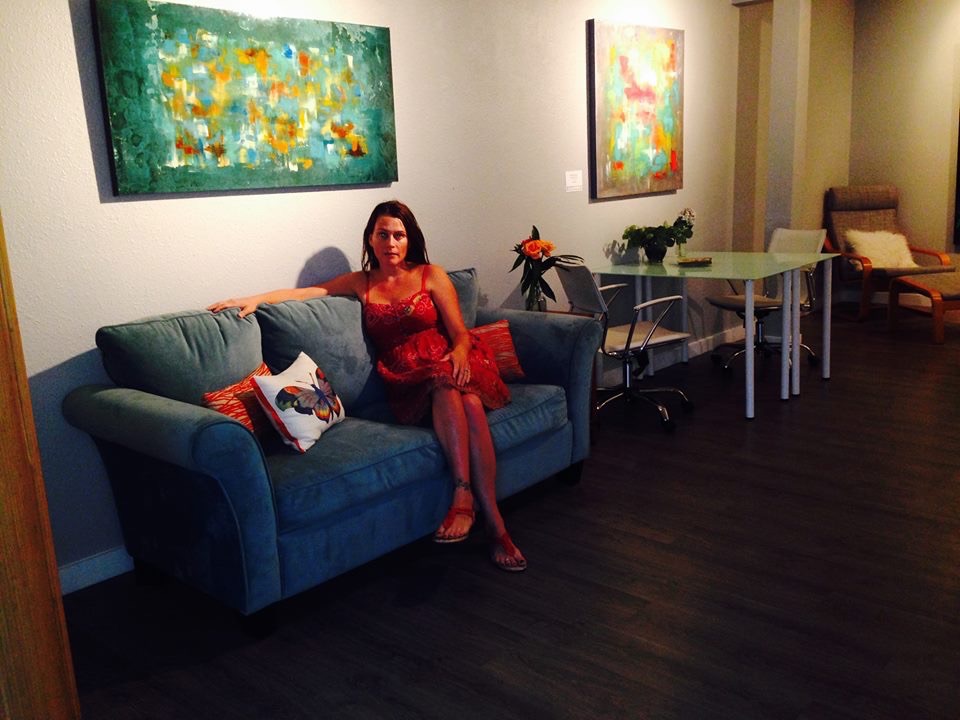Therapy

I was watching a show the other day where one of the characters is struggling with post-traumatic stress disorder (PTSD). They were confronted by a friend in the show who is concerned about some of the behaviors they have noticed. The character with PTSD is experiencing irritability, anger, nightmares, and flashbacks from being overseas in a war zone. When they are approached about this from their friend who suggests therapy, they say they don’t need a therapist; a stranger to fix all their problems. This can be a common response when someone is experiencing trauma & PTSD. It is something that is hard to face, often uncomfortable and painful, but facing it is what helps healing begin.
Starting therapy can be intimidating, and there are still many people who are hesitant to see a therapist. Unfortunately, a lot of this has to do with the stigma around mental health. As an advocate for breaking the stigma and providing access to mental healthcare, it is important to know that I take your emotional and mental health as seriously as your physical health. In addition to therapy often feeling intimidating, there can also be a level ofuncertainty and discomfort in telling a stranger some of the most tender and vulnerable things you have experienced or are currently struggling with, but it can also be freeing to not have to deal with it alone. To have someone by your side that understands what your brain is doing, what you are going through, and can offer support can be a very valuable thing. When I work with my clients, I often let them know at the beginning that we will take some time to get to know one another and make sure we are a good fit for counseling. This is important when you are working through tough things because you want to work with someone you can trust. The other important thing you should know about my approach to working with you is that I truly believe you are the expert of your life. Everyone experiences situations that arise in life differently. Therapy is an individualized and unique experience that is tailored to you, it’s not one size fits all. Together, we can work on what has brought you to therapy in a way that is healing and supportive for you.
It’s okay to be apprehensive about scheduling your first session. It is common to feel uncertain and nervous, and that is why there are several different ways you can reach out on the website. You can send an email, fill out a contact form, call, or even go to the home page and click on the client portal to schedule your own 15-minute consultation or session. Regardless of what you choose and what you are struggling with, I’m here when you are ready.
Storytelling that connects, heals, and inspires our community.
Explore our library of dynamic content.

Healing from Within: How Self-Compassion Leads to Lasting Growth

Spring Reset: You’re Not Behind, You’re Right on Time
.png)
Promoting Belonging For All

How Shifting Seasons Affect Our Mood: Embracing the Changing Weather

The Neurobiology of Trauma

Setting Boundaries Without the Guilt

Faith-Based Affirmations for Confidence & Self-Love

Emotional Resilience: Building Strength in the Face of Life’s Challenges

No Vacancy: Reclaim Your Mind and Guard Your Peace

From Betrayal to Acceptance: Navigating the Complex Emotions of Friendship Breakups

The Importance of Meaningful Connections Beyond Romance

Faith and Fertility: Navigating the Journey of Infertility with Hope
.png)
The Lasting Impact of Childhood Trauma on Adult Relationships

The Impact of Television on Mental Health: A Double-Edged Sword

Ambiguous Loss: What It Is, and The Path Towards Healing
.jpg)
Breaking The Cycle Radio featuring Inspired Practice clinician Dr. Alicia Hawley-Bernandez!

The Hidden Battle; Navigating Mental Health with Chronic Illness

Supporting the Mental Health for Underrepresented Populations

Trauma and the Body: Healing Holistically

The Beauty of Feeling: Why Being Sad is Part of the Journey

How Being in Nature Can Improve Your Mental Health and Well-Being

Navigating Wellness with Dr. Jennifer Vasquez

Travel Anxiety

March is self-harm awareness month

Inspired Practice Therapist Chantal Pierre featured in Voyage San Antonio magazine
-42.jpeg)
Inspired Voices Podcast #1

Clinical Director Transforming Trauma Podcast interview

Clinical Director Go Solo interview
.jpg)
Spirituality and Mental Health

Mental Health and Addiction

How to move forward and heal from traumatic events

Burnout and the workplace




